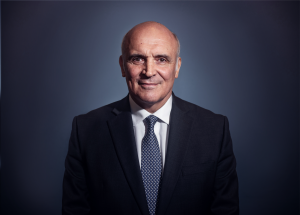Talks between Argentine farmers and the government to end a 20-day protest that has paralysed food supplies and sparked the worst political crisis in five years remained deadlocked yesterday ahead of the announcement of a package of measures for small producers.
The government – which has refused to negotiate with farm leaders unless their roadblocks are lifted completely – was expected to unveil subsidies and other compensation for small producers worth about $475m (€300m, £238m) to offset the impact of a new sliding scale of export tariffs on key crops such as soy, which they say unfairly penalises them.
Argentina has about 80,000 producers of soy, the country’s star crop, but 60 per cent of output comes from just 2,200 farmers.
President Cristina Fernández, who says the new export tariff regime is non-negotiable and vital to her policy of redistributing wealth from the commodities price boom, was planning her second rally of party faithful in less than a week today in a show of strength that is looking increasingly misplaced.
"They seem to be betting on escalating the conflict rather than defusing it," said political consultant Federico Thomsen.
The farm crisis is being seen as a turning point after five years of policies championed by Néstor Kirchner, Ms Fernández’s husband and predecessor, and continued by her. The policies have concentrated power in the hands of the president and a small entourage.
Thousands of Argentines took to the streets last week banging pots and pans to express their anger with a style that is increasingly perceived as arrogant.
The government, which sent police to line key routes yesterday to ensure trucks could pass, has threatened to apply a law giving it the power to fine producers who fail to supply the domestic market if the protest prevents key foodstuffs from reaching shops.
br>
But the protest has sparked serious shortages of meat, milk, fruit and vegetables, and poultry farmers say that they will have to cull thousands of chickens because of a lack of feed.
Meanwhile, consumer associations say that some prices have soared by 150 per cent, piling further pressure on inflation that private economists say is running at more than 3 per cent a month.
The Kirchners have built their economic model on managing prices for the raw materials in which the country is rich through export tariffs and subsidies to keep domestic prices low.
They point to five years of growth of more than 8 per cent, record reserves, budget and trade surpluses and growing employment as proof that their method is working.
But the government is widely believed to be underestimating inflation data. The impact of the farmers’ protest "will be an acceleration of inflation because of shortages and a deceleration of economic performance", said economist José Luis Espert.
He reckoned that inflation would end the year at 30 per cent and growth would be 6.6 per cent, compared with official data for last year of 8.5 per cent inflation and 8.7 per cent growth.

